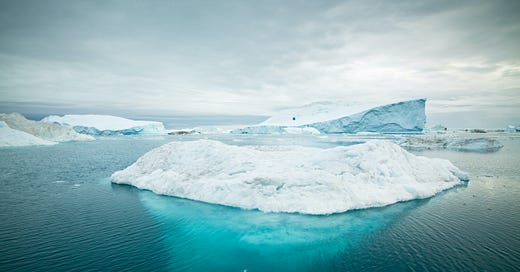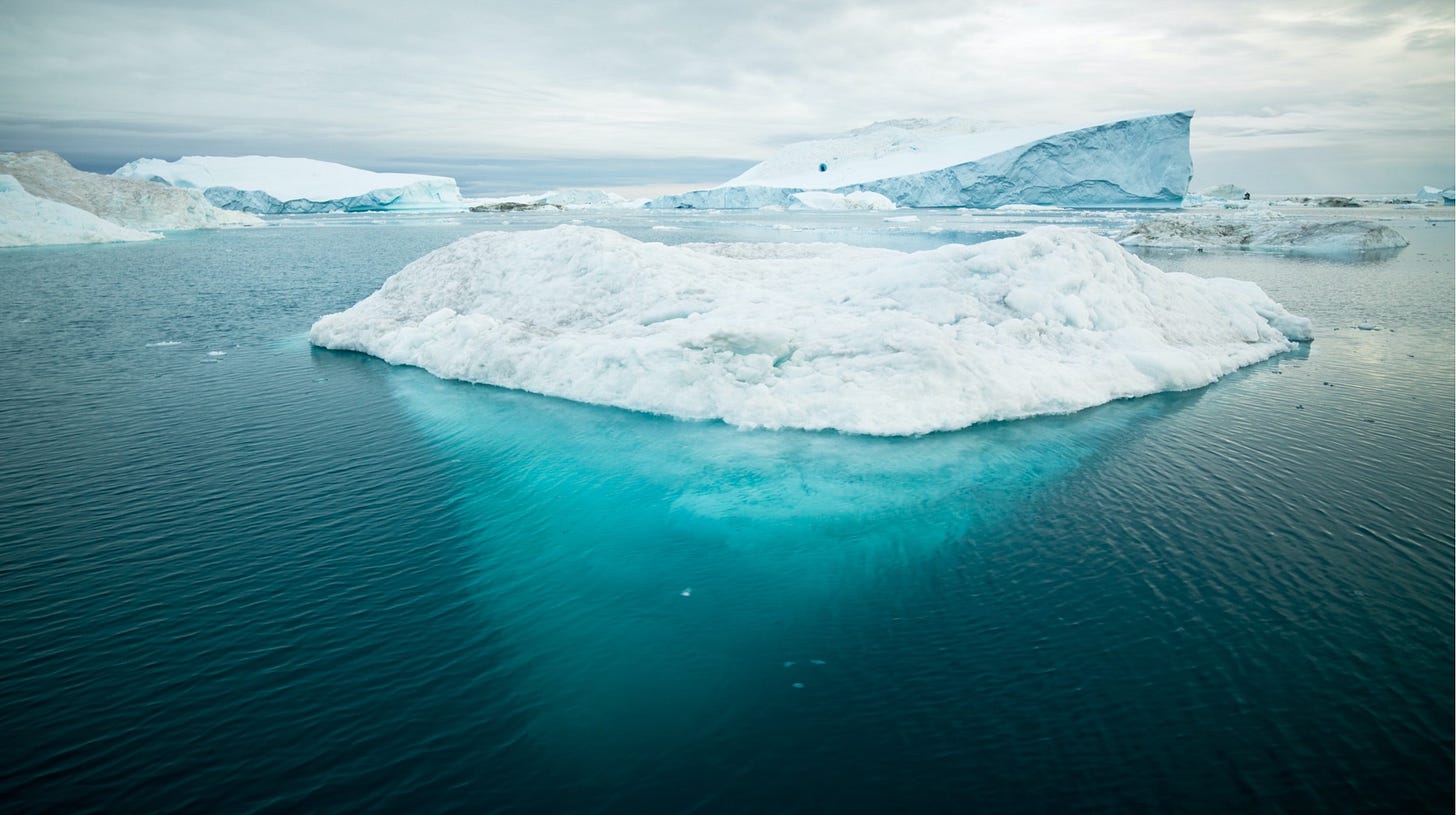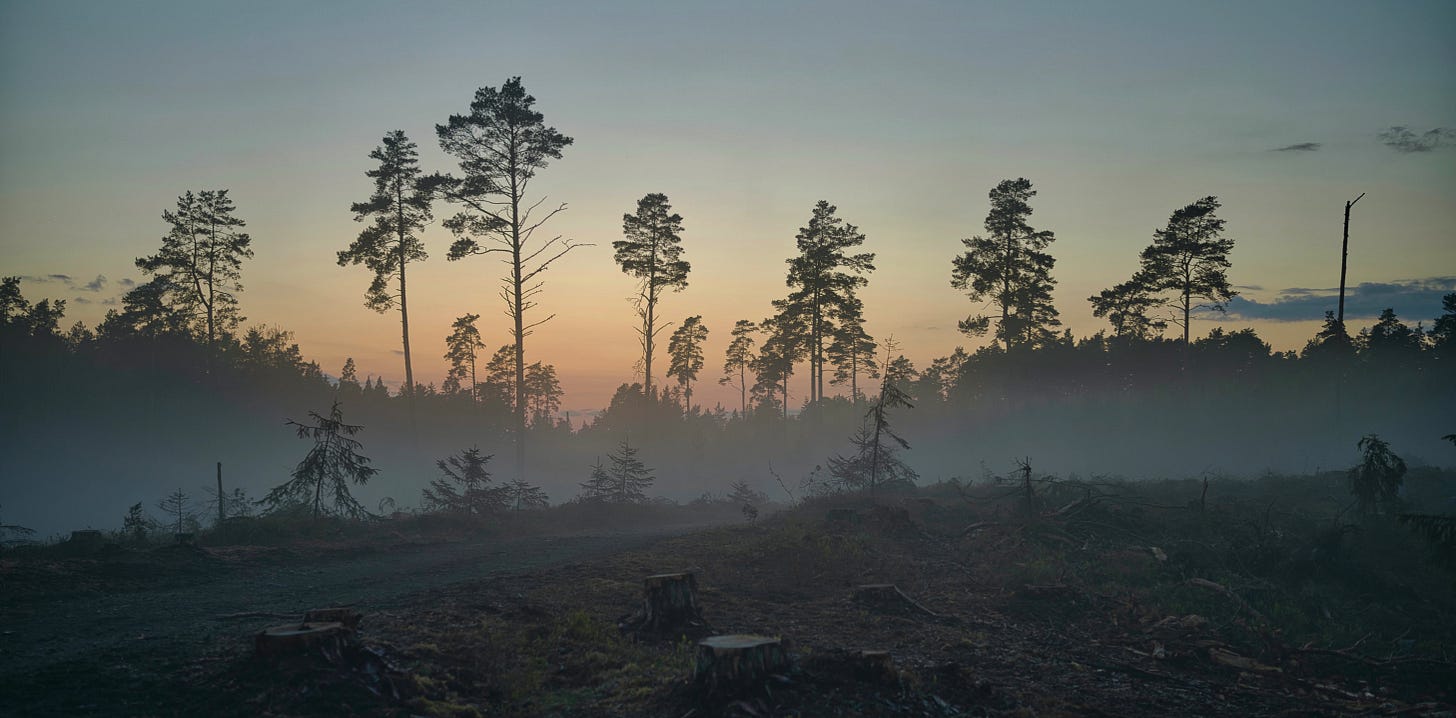The climate in 2100: The future is nearer than you think, and that is terrible news.
We are not good at imagining the future, which makes it harder to promote climate action.
Many of us fear for a future where climate change and the loss of nature make this planet a tough place to survive. Long-term climate change projections usually predict the situation in the year 2100; for instance, the IPCC reports frequently refer to the end of this century.
In the IPCC's 'middle of the road' scenario, temperatures will rise to 2.7C by the end of the century. Although that is a hot planet where you would not enjoy living, the reality might be worse in 2100 because there are some optimistic elements in this scenario. It assumes, for instance, that CO2 emissions hover around current levels before starting to fall mid-century. I doubt if that is realistic, I fear emissions are going up in the years to come.
If the idea of 2,7C higher temperatures frightens you, and it should, then don't think about the worst of the five IPCC scenarios. If current CO2 emissions levels roughly double by 2050, the average global temperature will be a scorching 4.4C higher by 2100.
When hearing bad news, denial is the first reaction. Climate change has been bad news for many decades, and so has our denial. That was not only a natural reaction to bad news; it was actively encouraged to deny the unfolding planetary disaster by the most powerful and best-informed people in the world: the leaders in the fossil fuel industry. When they knew that their products were ruining the planet, they decided not only to keep quiet but to lobby actively, advertise, and even infiltrate the school curricula with lies about climate change. Not one of them has been convicted for these crimes, a pleasure that you will probably not enjoy if you cry "fire" in a crowded cinema. Or, to stay closer to the fossil-fuel industry's denial, if you shout "there is no fire" in a burning cinema.
Now that the changing climate is visible daily to all of us, a relatively new development for most people, we move from the stage of flat-out denial to more subtle reactions to make the bad news about our planet more digestible. It comes in many forms, such as saying that you can't do anything to halt climate change (not true) or saying that you already do enough (you took a short shower) and that it is now time for others to do much more. That last thought, blaming others, is quite popular. Try it out with friends or family: start talking about climate change, and I guarantee you that fingers will be pointed at others within minutes.
Another aspect that makes us less alarmed than we should be is that the future is less far away than you think. It is a mistake that we all seem to make; when I recently called about my pension fund for the first time in my life, the adviser I spoke to told me that most people only start to think about their pensions when they are in their fifties. If that gives any guidance, you could say that we are prepared to look some 15 years in the future. That probably explains why science fiction goes a bit further to give us a feeling that it is really far away.
I remember when the second Back to the Future movie came out in my student days in 1985. For me, the idea of living in 2015 was unimaginably far in the future. Orwell used a similar time frame; he looked 36 years into the future when he wrote 1984 in 1948. (And I hate to say that the inversion of 48 to 84 is likely no more than just a popular theory. Orwell started in 1944 and wrote most of this book in '47 and '48. In that time, the title changed from ‘The Last Man in Europe’ to 1980, and then to 1982. One of his last amendments was that he changed it to 1984).
We tend not to take climate change projections for the year 2100 seriously because it is so hard for us to imagine more than 15 years into the future. But it isn't that far: it is only 78 years and 95 days. So a child that is born today may live one or two decades into the next century. And that child will have children and grandchildren that will have to live on the remnants of the paradise-like planet that we had the pleasure of knowing.
Flip back in time those 78 years and 95 days, and we are on 25 June 1943; does that sound unimaginably far away? I know that quite a few readers of this newsletter have memories of what they did in that black year of world history. It was the month that German Junkers shot down a passenger flight over the Bay of Biscay in what was likely an attempt to kill Winston Churchill, whom the Germans may have mistakenly believed that he was aboard. On the other side of the globe, Yamamoto was buried. It was the outcome of a similar scenario, this time with the target on board. It is the month of the capture, torture, and death of Jean Moulin, and it was another month of unimaginable horrors of war and holocaust.
The year 1943 doesn't feel like far when I think of my parents. Nor should 2100 feel far when we think of our children. In other words: someday your children may write in a blog in the year 2100, stating that 2021 doesn't feel far away from the past: their parents were still alive, there was still ice on the north pole, tourists enjoyed the coral of the Great Barrier Reef, the summers were lovely, you could still enjoy butterflies and free and fair elections.
There is another risk. Not only does 2100 look far away into the future, but the projections of 2100 also give the unintended impression of an end date. As if the changing of our climate stops at that date, followed by a new stable warmer situation. I wish it would work out like that.
Unfortunately, in all likelihood, it gets much worse in at least some aspects. The first that comes to mind is sea-level rise, which will likely be much worse in the next century than in our times. Even if we somehow manage to stop the increase of CO2 in the next decade, the sea level will keep rising because of tipping points we have passed that make some ice shelves in the Arctic disappear. If we were able to project some 500 years in the future, we would see a planet that has unrecognizably changed, without the essentials for our human culture to survive. I hope you will agree that we don't have a day to lose to reduce fossil fuel use and deforestation and prepare for the challenges of a different kind of planet that is our only home in a vast, cold, and lonely universe.
I write this newsletter because I believe that together we can do better on this beautiful but fragile planet.
This newsletter is an independent production. Accordingly, I have never accepted any advertising offers. I also aim to make as many editions as possible available for free.
Support from those who can afford it makes this independent newsletter available to all. You can join this initiative by taking a paid subscription.
If the cost of this newsletter ($6/month, $60/year) would create any financial strain, please stay on the free list; I value all readers.
Notes:
https://www.reuters.com/business/environment/un-climate-reports-five-futures-decoded-2021-08-09/
photo ship: Photo by Siarhei Palishchuk on Unsplash
photo sunset cut down forest: Photo by Maksim Shutov on Unsplash
photo ice Greenland: Photo by Alexander Hafemann on Unsplash










There are many who agree with the fact that climate change is a topic that every government needs to address. Until the power of the fossil fuel industry in governments is blocked it will hinder effective action. We can all take actions to help but nations must be the ones to implement real change. Thanks for your informative article and may your words reach the right ears.
Thanks Alexander. Your sobering message is on target and very important to disseminate. While I have some doubts about some of the assumptions in IPCC's worst case scenario(s), that is largely irrelevant as the predictions from their much more likely scenarios are already a disaster for our children and their children. 2100 will be here much faster than we can imagine, and we have no time to waste. Our small, individual actions are important, and I remain hopeful that our world leaders, particularly in the northern countries, will begin to act and not just talk. We must hold them accountable at the polls.